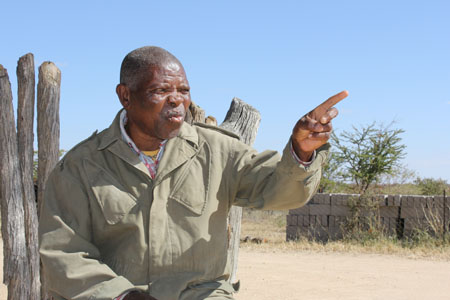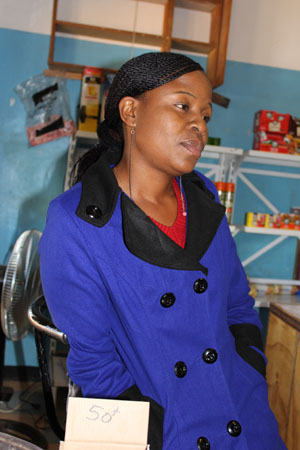From Ndebele dominance to Setswana
05 Sep 2013
Residents of border villages usually have family members on either side of the border dividing their respective countries.
Apart from this having a general impact on their culture, the effects of living too close to a national boundary are often more pronounced on the people’s language than anything else.
The people of Jackalas 1 in the North East District, a village that lies along the banks of the Ramokgwebana River which divides Botswana and neighbouring Zimbabwe, are a living example of the spillover effects of languages spoken across the border.
The bulk of them, mostly the elderly, are conversant with Ndebele, a language widely spoken in the southern parts of Zimbabwe. And the extent of the scenario is such that for some of them, the use of local languages such as Setswana and Kalanga is a struggle, if not an impossible exercise.
Kgosi Moffat Mapete of Shongo ward in Jack 1, as the village is affectionately called in the area, says Ndebele is so prevalent among the elderly that some people find it difficult to get help from government offices because of the language barrier.
“When civil servants come here to address kgotla meetings, they don’t understand us because we address them in Ndebele. We also do not fully benefit from government programmes because we also don’t fully understand when they explain to us in Setswana,” he notes.
From way back, the elderly people in the village have had to rely to a great extent on the use of interpreters to speak to non-Ndebele speakers.
Ikalanga is another language generally spoken in the village, but, for some reason though, there seems to be no communication hurdles between speakers of either Ndebele or Kalanga despite one speaker knowing and understanding only one of the two.
This is probably due to the fact that the two languages have for ages been used side by side in the village, something which has perhaps led to the residents having a functional understanding of each other. Possibly because of the diminishing numbers of non-Setswana speaking elderly people due to death, Kgosana Mapete is of the view that the status quo is rapidly changing as more and more young people do not speak Ndebele.
He blames the introduction of alien languages such as Setswana and English to children when they start school for the decline in the use of Ndebele and Kalanga among the people of his village.
Ninety-two-year old Ms Ntombi Mbuye is one of the few remaining old people in Jack 1 who still does not speak or understand Setswana. As she speaks only Kalanga and Ndebele, she needs an interpreter in order to communicate with those who do not speak the two languages. Ms New Scotch, another resident, says Ndebele is as old as the village itself, if not older.
Their constant interaction with their relatives on the Zimbabwean side of the border has kept the erosion of Ndebele language at bay for many years. And the rapid switch to Setswana that is now taking place has left Ms Scotch lost for words as to what could be done to reverse the tide.
A youth, Ms Banji Moshoeshoe speaks Kalanga, Setswana, English and a bit of Ndebele.
The 29-year-old shop assistant reckons the youth from Ndebele-speaking homes may have grown averse to using the language for fear of being labelled foreigners.
“The majority of people in my age group don’t speak Ndebele, including those at whose homes it is spoken.
I guess their fear is that if they did they would be thought of as Zimbabweans,” she explains, pointing out, however, that there are indeed elderly people who have absolutely no knowledge of Setswana.
Ms Moshoeshoe pities such people, wondering what benefit they reap from watching television news or listening to radio broadcasts in local languages. Though the tide is indeed changing with the dwindling numbers of Ndebele speakers in Jackalas 1, one wonders if only their linguistic identity and not their culture as a whole is being affected.
Will the relations of the youthful generations on both sides of the border remain as strong as those of their predecessors once they have lost the connection that the use of Ndebele gave them?
Perhaps only time will be able to tell. ENDS
Source : BOPA
Author : Keonee Kealeboga
Location : Masunga
Event : Feature article
Date : 05 Sep 2013








